Ambassador row: Met Police criticised for warning off press
- Published
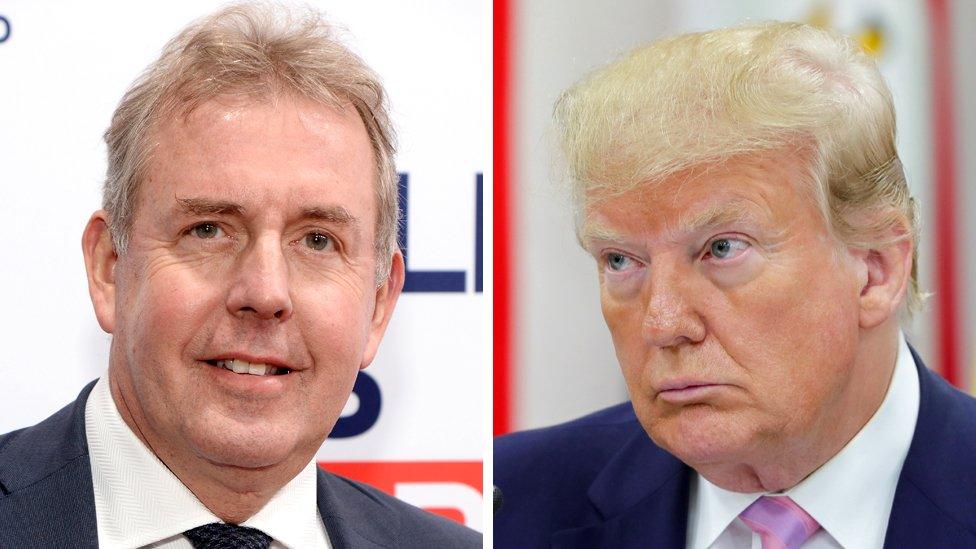
UK ambassador Sir Kim Darroch (l) called President Trump's administration "inept" in leaked emails
Scotland Yard has been criticised for warning media organisations against publishing leaked government documents.
Metropolitan Police Assistant Commissioner Neil Basu advised editors it "could be a criminal matter".
His comments came as a criminal investigation was launched into the leak of diplomatic emails from the UK ambassador in the US, Sir Kim Darroch.
Evening Standard editor George Osborne described Mr Basu's statement as "stupid" and "ill-advised".
The investigation was launched by the Met Police Counter Terrorism Command, which takes national responsibility for investigating allegations of criminal breaches of the Official Secrets Act.
"The publication of leaked communications, knowing the damage they have caused or are likely to cause, may also be a criminal matter," said Mr Basu., external
He added: "I would advise all owners, editors and publishers of social and mainstream media not to publish leaked government documents that may already be in their possession, or which may be offered to them, and to turn them over to the police or give them back to their rightful owner, Her Majesty's Government."
Mr Osborne, the former chancellor, tweeted, external that to maintain credibility the Met Commissioner, Cressida Dick, should distance herself from "this very stupid and ill-advised statement from a junior officer who doesn't appear to understand much about press freedom".
Other newspaper editors and MPs were also critical of Mr Basu's statement.
Sunday Times political editor Tim Shipman asked if Ms Dick had cleared the "sinister, absurd, anti-democratic statement... threatening journalists with arrest for printing government leaks?"
He added, on Twitter:, external "Do you have any comprehension of a free society? This isn't Russia."
Peter Spiegel, Financial Times US managing editor, wrote:, external "Well, this is rather chilling from a major police force in a western democracy. What are you going to do, Met Police, arrest us?"
Foreign Secretary Jeremy Hunt said he defended "to the hilt" the right of the press to publish leaks if they "judge them to be in the public interest".
Allow X content?
This article contains content provided by X. We ask for your permission before anything is loaded, as they may be using cookies and other technologies. You may want to read X’s cookie policy, external and privacy policy, external before accepting. To view this content choose ‘accept and continue’.
His Tory leadership rival Boris Johnson said it was correct the person responsible for the leak was "hunted down and prosecuted" but it was wrong for police to target the media.
He said: "A prosecution on this basis would amount to an infringement on press freedom and have a chilling effect on public debate."
Labour leader Jeremy Corbyn said freedom of the press was "vital" and it was right there were "considerable protections" in place for journalists to reveal information.
MP Tom Tugenhadt, chairman of the Foreign Affairs Committee, told Radio 4's Today programme that it was "a reasonable request" to ask the media not to publish leaked documents which undermine security, but he "doubted" whether it was a crime.
However, former defence secretary Sir Michael Fallon said the leak was a clear breach of the Official Secrets Act and the police were entitled to try to prevent further disclosures.
"If they [the press] are receiving stolen material they should give it back to their rightful owner," he told the Today programme.
"They should also be aware of the huge damage that has already been done, and the potentially even greater damage to be done by further breaches of the Official Secrets Act."

What is 'in the public interest'?
Journalists are not above the law, but it is understood "in a free, liberal and democratic society" that the media "should be free to report on leaked documents that they believe are in the public interest", says Ian Murray, executive director of the Society of Editors.
Mr Murray maintains it is unlikely police are going to "shoot the messenger", adding that to hold authority to account journalists can't be allowed to be bullied into handing over documents.
Who decides what is in the public interest, however, can be contentious.
"It's a difficult line to tread between what's in the public interest and what interests the public," Mr Murray says.
However, he adds that the idea that one particular body would make that decision - or no-one would have to decide because journalists have "dutifully" handed in documents to the police is "appalling".

The government has already opened an internal inquiry into the publication of the memos, which were critical of the Trump administration - and prompted a furious reaction from the US president, who said he would no longer deal with Sir Kim.
President Trump branded him "a very stupid guy" after confidential emails emerged where the ambassador had called his administration "clumsy and inept".
Sir Kim stepped down as ambassador on Wednesday, saying it was "impossible" for him to continue.
Boris Johnson on Sir Kim Darroch
Sir Kim's resignation prompted widespread support for him - as well as criticism of Tory leadership frontrunner Mr Johnson.
According to some Whitehall sources, Sir Kim decided to resign after Mr Johnson failed to fully support him during a TV debate on Tuesday night.
Mr Johnson denied any culpability, saying he had spoken to Sir Kim on Thursday to express his sadness over his resignation and the ambassador told him he had not watched the ITV debate.
But on Friday, Mr Johnson told the BBC a "misrepresented" account of his remarks relayed to Sir Kim had been "a factor" in his decision to step down.
Trump: 'I wish the British ambassador well'
Prime Minister Theresa May said Sir Kim's departure was "a matter of deep regret" and public servants should be able to give "full and frank advice".
Shadow foreign minister Liz McInnes said Sir Kim Darroch was "just doing his job" and the criminal investigation was "welcome".
- Published13 July 2019
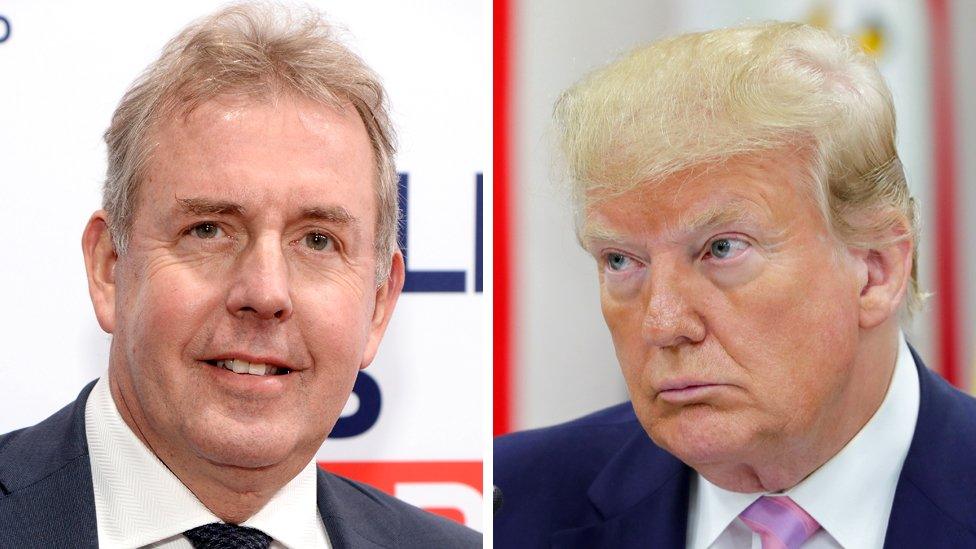
- Published11 July 2019
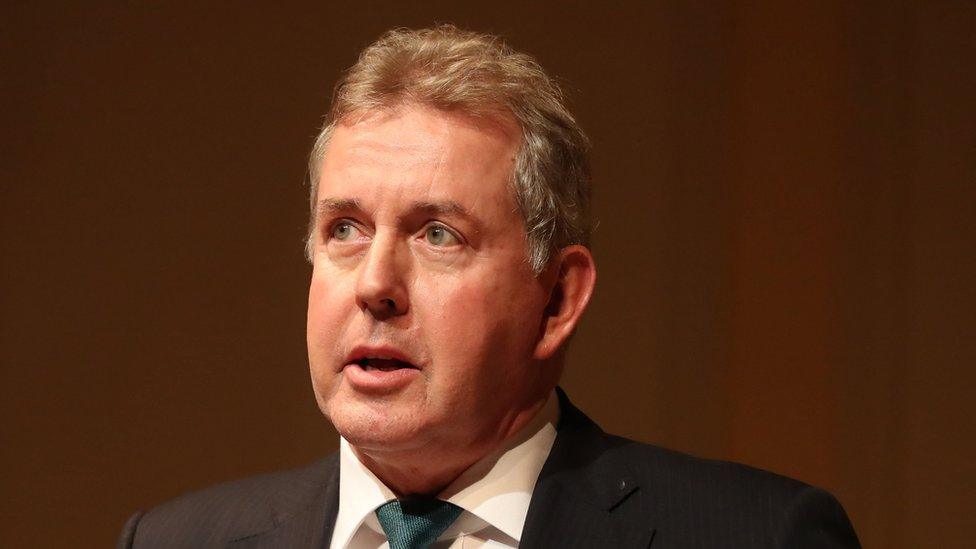
- Published10 July 2019
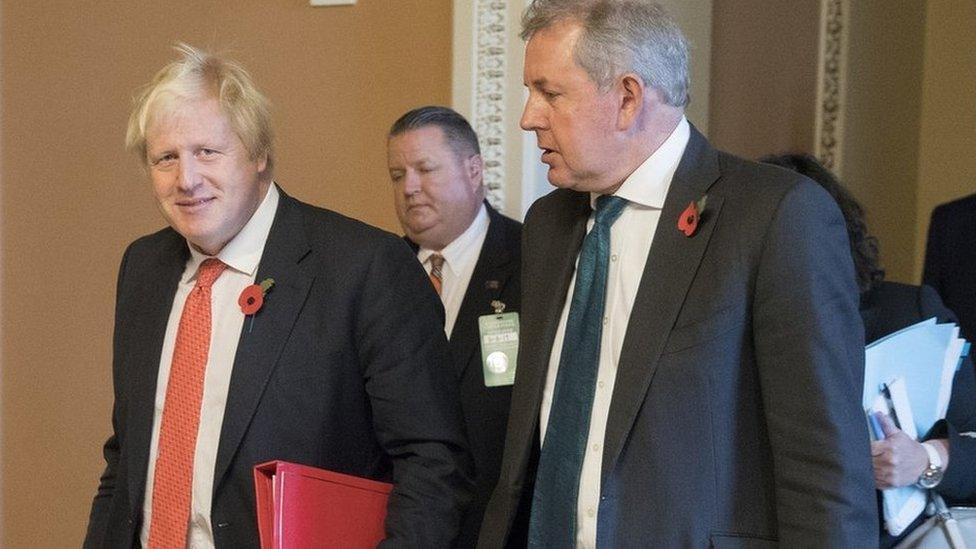
- Published8 July 2019
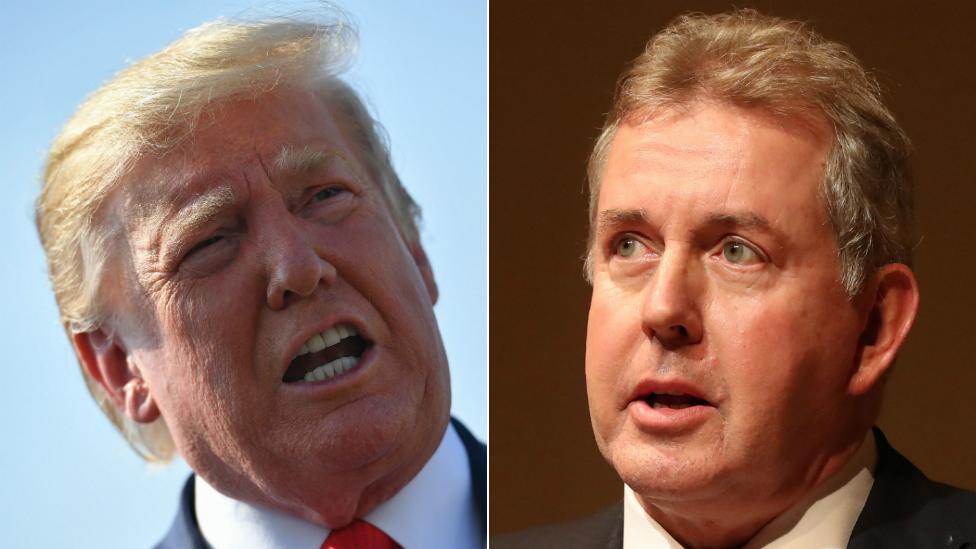
- Published10 July 2019
- Published10 July 2019
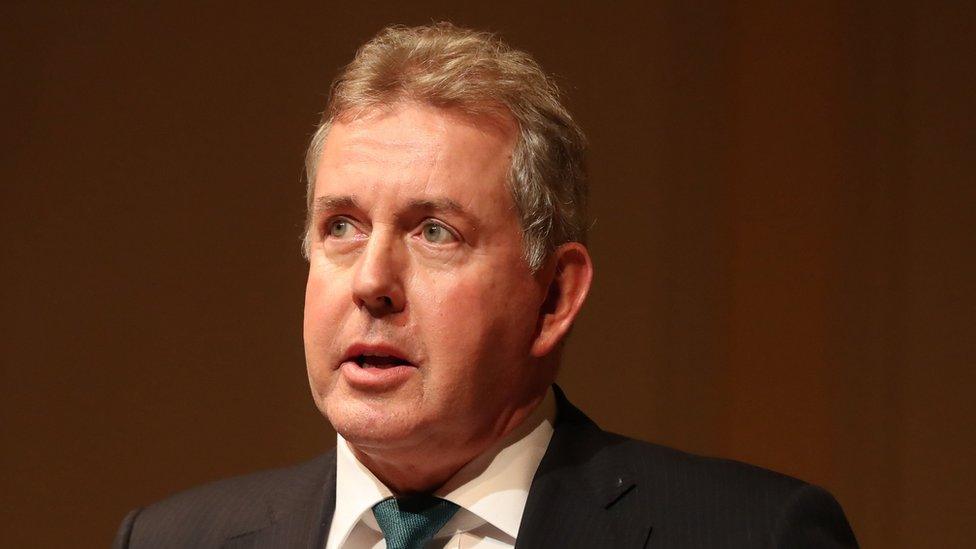
- Published10 July 2019
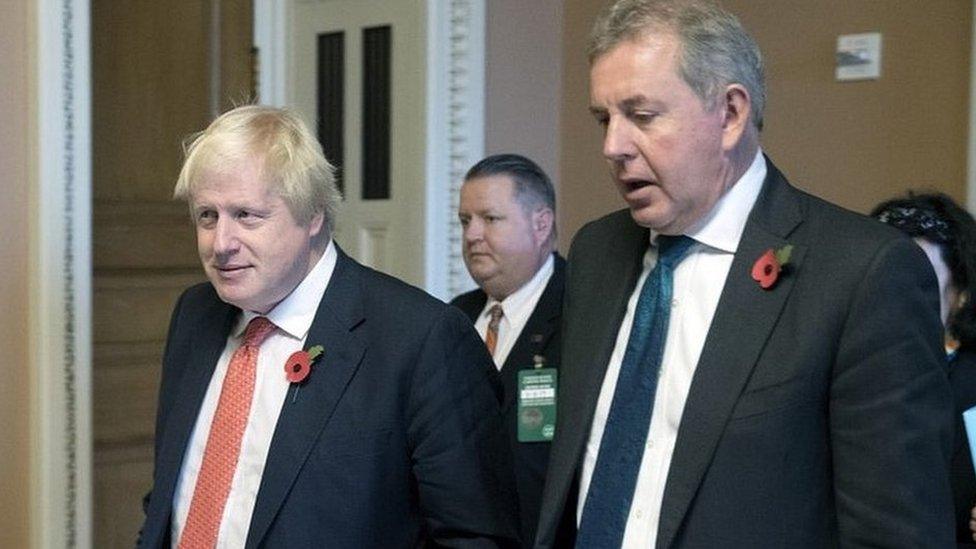
- Published10 July 2019
